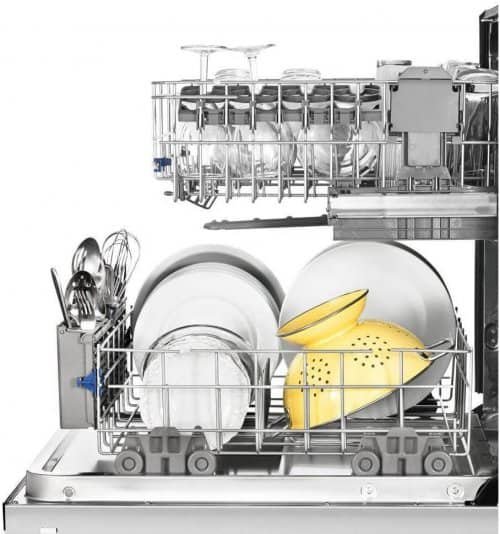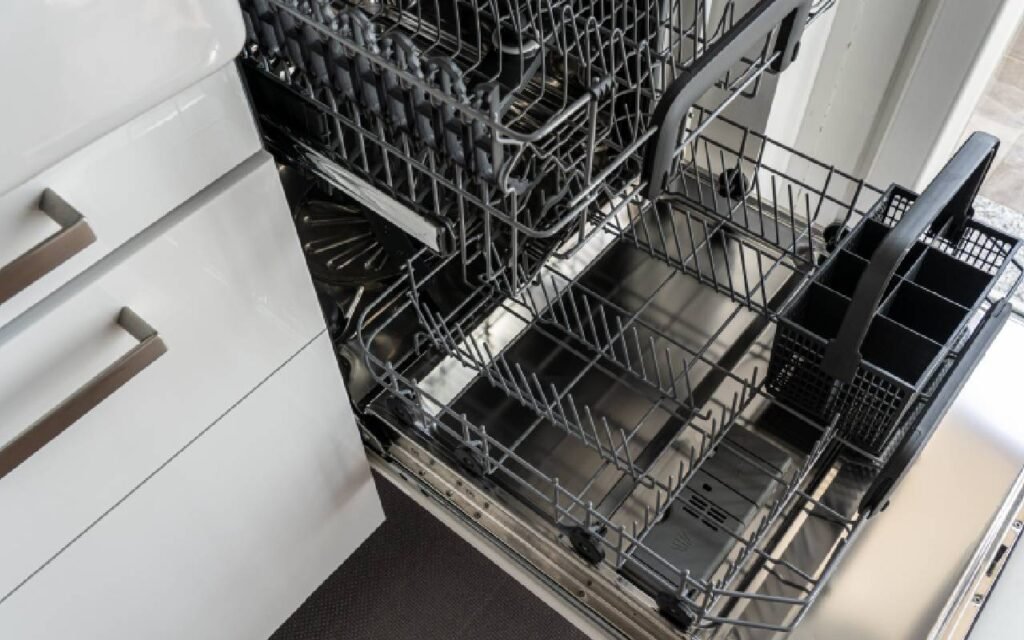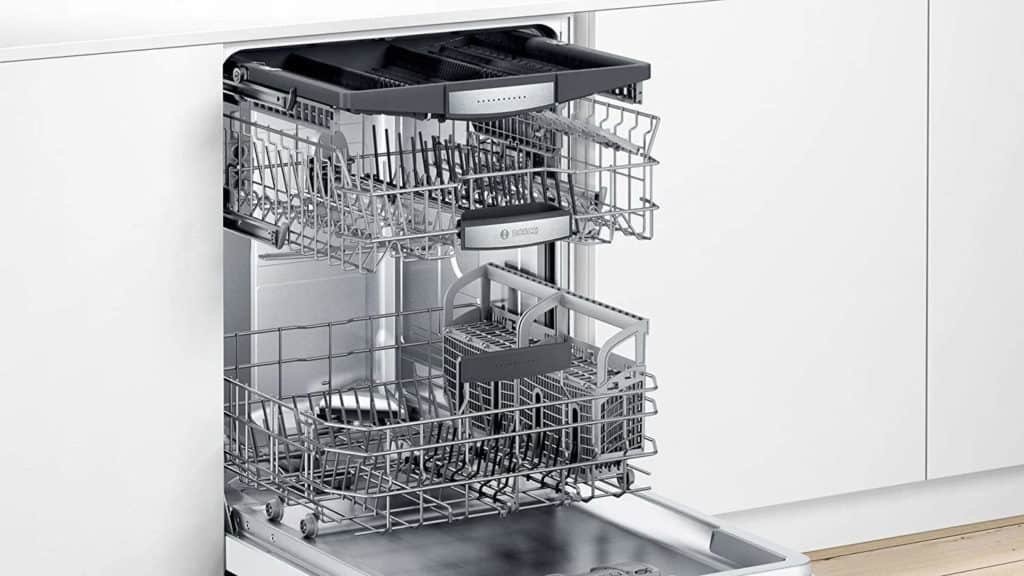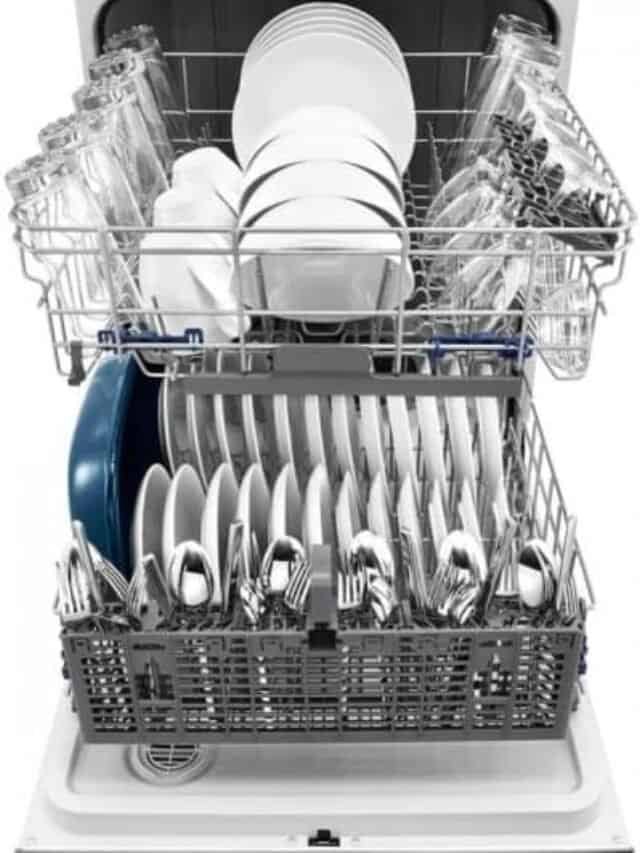Maintaining a clean dishwasher hose is crucial for ensuring optimal kitchen hygiene. A clogged dishwasher hose can lead to various issues, from unpleasant odors to poor cleaning performance.
In this guide, we’ll explore the essential steps to keep your dishwasher hose in top condition, promoting a healthier kitchen environment.

Table of Contents
How to Clean Dishwasher Hose Efficiently?
Cleaning a dishwasher hose efficiently requires a few simple steps. First, disconnect the hose from both the dishwasher and the sink drain to access it fully.
Next, use a long, flexible brush or pipe cleaner to scrub inside the hose and remove any debris or buildup. You can also soak the hose in a mixture of warm water and vinegar to help break down any stubborn residue.
After cleaning the hose thoroughly, make sure to rinse it well with clean water before reattaching it to the dishwasher and sink drain.
Additionally, running a cycle with hot water and vinegar through your dishwasher can help clean out any remaining residue in the system.
Regular maintenance like this can help prevent clogs and ensure your dishwasher runs efficiently for years to come.
Signs of a Clogged Dishwasher Hose
Before delving into the cleaning process, it’s essential to recognize the signs of a clogged dishwasher hose.
These include slow drainage, water pooling at the bottom of the dishwasher, and unusual noises during operation. Identifying these symptoms early on can prevent more significant issues down the line.

Why Regular Cleaning Matters
Regular cleaning of your dishwasher hose is more than just a maintenance task, it’s a preventive measure against potential problems.
Neglecting this vital component can result in damage to the dishwasher and compromise its overall efficiency. A clean hose ensures proper water flow and prevents blockages that may lead to costly repairs.
Tools and Materials Needed
To embark on your dishwasher hose cleaning journey, gather the necessary tools and materials. You’ll need a screwdriver, a soft brush, vinegar, baking soda, and a small bucket. Having these items on hand will make the process smoother and more effective.
Step-by-Step Guide
Follow these straightforward steps to clean your dishwasher hose:
- Turn off the dishwasher: Ensure the appliance is disconnected from power before starting the cleaning process.
- Locate the hose: Identify the dishwasher hose, usually located at the back of the appliance.
- Disconnect the hose: Use a screwdriver to loosen the hose clamps and detach the hose from both the dishwasher and the sink drain.
- Inspect for debris: Examine the hose for any visible debris or clogs.
- Use a soft brush: Gently scrub the interior of the hose with a soft brush to dislodge accumulated residue.
- Prepare a cleaning solution: Mix equal parts vinegar and baking soda to create a powerful yet eco-friendly cleaning solution.
- Pour the solution into the hose: Carefully pour the mixture into the dishwasher hose to break down stubborn deposits.
- Let it sit: Allow the cleaning solution to sit in the hose for at least 15 minutes to ensure thorough cleaning.
- Rinse with water: Flush the hose with warm water to remove the cleaning solution and dislodged debris.
- Reconnect the hose: Once clean, reattach the hose to the dishwasher and sink drain, securing it with the clamps.
- Run a test cycle: Turn on the dishwasher and run a short test cycle to ensure proper water flow and drainage.

DIY Cleaning Solutions
For an eco-friendly approach to dishwasher hose cleaning, consider these DIY solutions:
- Vinegar and baking soda: As mentioned earlier, this combination effectively breaks down debris without harsh chemicals.
- Lemon and salt: Mix lemon juice and salt to create a natural abrasive cleaner, ideal for removing built-up grime.
- Essential oils: Add a few drops of essential oils, such as tea tree or eucalyptus, to your cleaning solution for a refreshing scent.
Preventive Measures
Taking proactive measures to prevent dishwasher hose clogs can save you time and effort in the long run. Some preventive tips include:
- Scrape dishes before loading: Remove excess food particles from dishes before placing them in the dishwasher.
- Run hot water before a cycle: Let hot water run in the sink before starting the dishwasher to ensure the hose receives hot water immediately.
- Use a dishwasher cleaner: Periodically use a commercial dishwasher cleaner to maintain optimal performance.

Professional Assistance
While DIY cleaning is effective for regular maintenance, certain situations may require professional assistance. If you encounter persistent issues or suspect significant damage, it’s advisable to consult a professional dishwasher technician to assess and address the problem.
Common Mistakes to Avoid
To ensure a successful cleaning process, avoid these common mistakes:
- Using abrasive tools: Avoid using abrasive materials that may damage the hose.
- Neglecting the power source: Always disconnect the dishwasher from power before attempting any maintenance.
- Skipping regular maintenance: Consistent cleaning is key to preventing clogs and maintaining optimal dishwasher performance.
Benefits of a Clean Dishwasher Hose
Investing time in cleaning your dishwasher hose yields several benefits, including:
- Improved efficiency: A clean hose ensures proper water flow, enhancing the dishwasher’s overall performance.
- Reduced odors: Eliminating debris minimizes unpleasant smells emanating from the dishwasher.
- Extended appliance lifespan: Regular maintenance contributes to the longevity of your dishwasher.

Troubleshooting Tips
If you encounter challenges during the cleaning process, here are some troubleshooting tips:
- Persistent clogs: Use a plumbing snake to dislodge stubborn clogs.
- Unusual noises: Inspect the hose for any visible damage or loose connections.
- Leaking water: Ensure the hose clamps are securely fastened and replace them if necessary.
Maintenance Frequency
The frequency of dishwasher hose cleaning depends on various factors, including usage and water hardness. As a general guideline, aim to clean the hose every three to six months to maintain optimal functionality.
Environmental Impact
Maintaining a clean dishwasher is not only beneficial for your kitchen but also for the environment. By using eco-friendly cleaning solutions and adopting responsible practices, you contribute to sustainability efforts and reduce your carbon footprint.
Conclusion
A clean dishwasher hose is the unsung hero of a well-functioning kitchen. Regular maintenance not only prevents inconvenient clogs but also ensures your dishwasher operates efficiently for years to come. By following the outlined steps and adopting preventive measures, you can enjoy a cleaner, more reliable dishwasher and a healthier kitchen environment.
